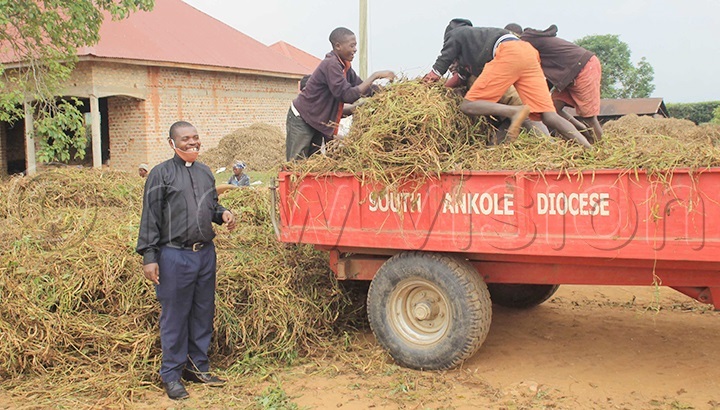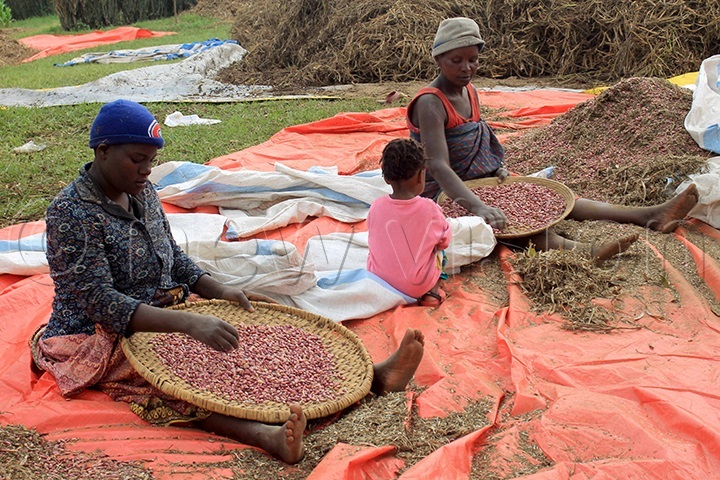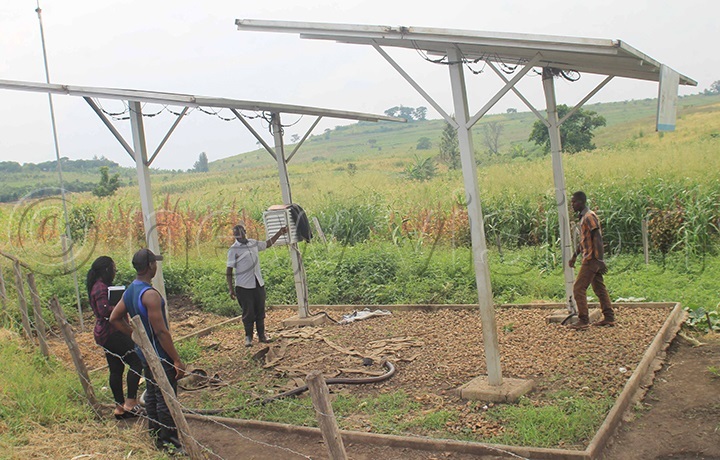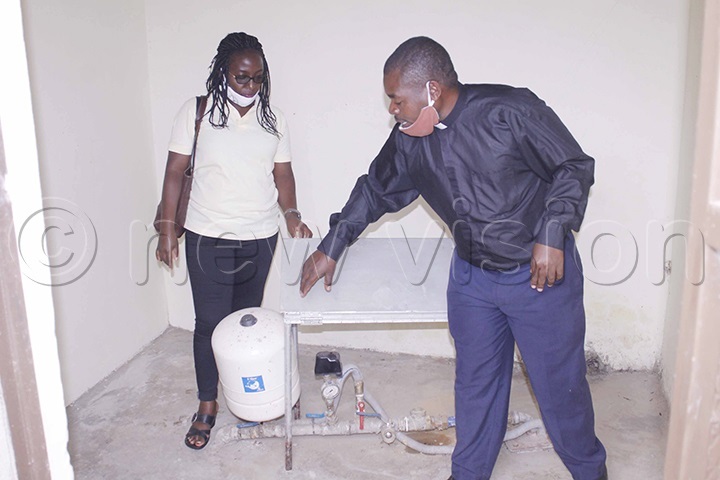Solar irrigation scheme changing farming in western Uganda
He says that before receiving solar powered irrigation system, he was using other farming methods of irrigating crops like watering cans and water pumps, but all these methods were not achievable.
FARMING
In the recent past years, Uganda has experienced climate change and variability which has caused low food production due to prolonged drought that affects many farmers.
Water remains the most critical factor in agricultural production in Uganda.
The agricultural production systems are largely rain-fed. In western Uganda, a big percentage of households depend on crop farming and livestock.
This means that any change in climate will either affect them positively or negatively but in this case, the problem of drought that usually occurs in months of May up to august affects them very much.
This has impelled the Government to support farmers with small scale on-farm demonstrations through NAADS program for solar-powered irrigation systems to avert the adverse effects of climate change.
Jonathan Ahimbisibwe from Katonya village in Katerera sub-county Rubirizi District is among the 68 beneficiaries of a solar-powered irrigation system which was given to him by NAADS in 2018.
He says that before receiving the solar-powered irrigation system, he was using other farming methods of irrigating crops like watering cans and water pumps, but all these methods were not achievable.

Since it needed manpower and even it was expensive when it comes to fuel consumption and maintenance of the generator.
On part of harvesting, Ahimbisibwe used to target rainy season for planting because he was sure that in the dry season that was a total loss for him and other farmers.
This practice would limit him from expanding his field of farming which was again an obstacle though he had enough land.
The introduction of the solar power irrigation system in 2018 to his farm brought light and wealth in his home because everything at the farm changed.
Before he used to practice onion farming on two acres of land and he would only harvest one season in a year since he feared drought.
As we talk now he has increased acreage to seven acres and he harvests throughout the year because he is no longer affected by the dry season.
"If the government supplies more solar power irrigation systems to other farmers, food production will increase in the country. We shall be able to produce much and even export more because farmers will be harvesting throughout the year." Ahimbisibwe reveals.

Minus empowering farmers with solar irrigation system, NAADS is also empowering farmers with coffee seedlings.
The Bishop of South Ankole Diocese Nathan Ahimbisibwe says that through NAADS program the dioceses in 2019 received 2850 coffee seedlings which were distributed to 264 parish churches in the diocese as one way of increasing production in the church.
The diocese planted 23 acres of coffee and their target is to have 400 acres which will force them to have a coffee factory in future since production will be high.
"South Ankole diocese was selected in all country last year to be a modal diocese so that other diocese can learn from them, that why we are setting up more projects including hatchery, goat rearing, banana plantation, mangos and other infrastructure projects that will bring money," Bishop Nathan Ahimbisibwe says.
This has not only helped the diocese workers but even Christians have benefitted through employment opportunities, whereby 70 people are now employed at the diocese in different sections.
In this harvest, the South Ankole diocese is expecting 80 bags of beans which will be a great income to the diocese.

Jonathan Ahimbisibwe requests the Government to increase the number of beneficiaries in every village.
"This would rapidly increase market for produce because there will be high production throughout the year," he says.
Nakakande Khadija, head of communication and public relations at National Agricultural Advisory Services (NAADS), says that the support targets both crop and livestock farmers in areas with long dry spells for crop irrigation and livestock watering in cattle corridors.
The support according to Nakakande was given to those farmers who expressed interest on behalf of other farmers.
The selected farmers who benefited are those who had not less than five acres of farmland, reliable source of water at the farm.
In the country so far NAADS has distributed 68 solar water pumping systems to farmers with a future plan to cover all sub-counties in the country.
"Each solar water pumping system is valued at an average of sh 100m with a capacity of 2 to 4 cubic meters per hour," she says.

Those who were given solar water pumping system were given to them for demonstration purposes to enable farmers in communities to adapt to the system.
The support was given to farmers on a cost-sharing basis with NAADS providing the water pumping system and giving guidance to farmers on how to develop the downstream watering system or the reticulation networks.
As NAADS is working hard to increase food production, farmers are requesting the Government to look market for their produce.
They say that middle businessmen are making more profit than farmers who spend much energy in clearing the garden, weeding, pruning and even money buying chemicals and fertilizers.

"We are now dealing in large scale farming which means that the production will also be large. If we don't get a large market for our produce that means we shall be making a loss." Bishop Ahimbisibwe calls.
On the issue of market, Nakakande says that as NAADS they are now happy to see that through their intervention, food production in the country is increasing on high speed compared to past years when there was an outcry.
"Government is now putting up some factories like fruit factory, which will help in increasing value addition," she says.
She requested farmers to form cooperatives/ farmer's groups which will help them to have one voice.